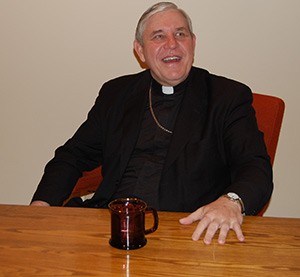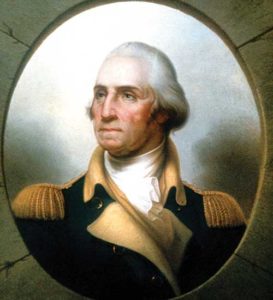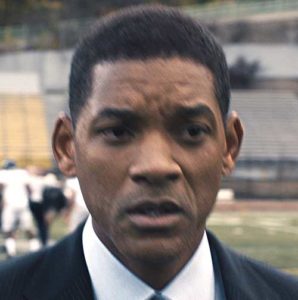Three times each year, Catholic Herald myFaith reporters have a chance to speak with Archbishop Jerome E. Listecki about anything young adults want to know – send a question to be asked anonymously in the next issue to poirierj@archmil.org. The archbishop recently sat down to talk with myFaith reporter Joe Poirier, who shares his responses, edited by myFaith Staff, below.
What, if any, do you see as long-term effects from the Year of Mercy on Catholics’ faith lives?
What has transpired, in my mind, is the sense of Pope Francis to raise the consciousness about our responsibility toward our brothers and sisters. When you take a look at the Year of Mercy, you can see how we try to incorporate those corporal works of mercy and to a lesser extent understand those spiritual works of mercy that we are responsible for as Christians.
The long-term effect, just like anything, since we’ve been involved for the whole year in this process is that those works of mercy will be a reference point we come back to as we grow, develop and form.
I’ve often said it’s not that we weren’t performing works of mercy before, that’s our obligation as Christians, but to understand why mercy is our responsibility and that’s because God was merciful to us in giving us his son.
Therefore with this overflowing aspect of grace and gifts for mercy in our lives we’re now called to share that with others.
If you could live in another time period, where and when would it be and why?
Fitting into my spirituality, I would have to say I’ve always believed that in your prayer you should understand that God has you where he wants you to be. For me, I am comfortable in my skin, I’m comfortable in the fact that I am here, I don’t long to be in the 1940s or 1920s.
However an interesting period of time, as an American, I am fascinated with the figures from the American Revolution. I’ve talked about the gathering of some great men who were dedicated to a vision of establishing this nation. I know that there are many who would say ‘well, as a bishop why wouldn’t you like to go back to the time when Jesus was here,’ because I believe Jesus is still with us, he rose from the dead, we as the body of the church continue on.
I would hope that my sense of not choosing that period would be because I would want to go back and hear what Jesus really said, I know what he said, he gives it to us through the church.
As an American, I would have loved to been around during the Revolution. I’m a great fan of Washington; he truly is a leader embodied as the father of our country, he understood his role as president. Take a look at what he did, he turned down the crown. How many men or women would refuse that type of power?
I would’ve loved to have had that opportunity to encounter those men, Jefferson, Adams and Franklin. What’s the most popular Broadway production? Hamilton. There was something about the spirit of that time, which the vision was embodied by the things people did.
Do you see the post-election polarization gripping the U.S. affecting Catholics and our church?
You can’t be an American and not be affected by the politics of America. You’d be in a coma if you didn’t. I’ve often said publicly, I’m not a Democrat or Republican, I’m a Catholic.
That means I do use the church and my faith to criticize the policies and direction that either party will offer to us. There was some very positive aspects to both parties, but what happened with the polarization came in in terms of the lack of civility that should have been present basically in the leaders. Then the issues become more and more intense, certainly when someone is purporting for partial-birth abortion, that’s the taking of a innocent life or when there is not a reasonable sense of dealing with the immigrant problem that we helped to create in this country.
Those issues are issues that affect people in an immediate way. Even with the construction of the Catholic social principles that are clear, how we reach them is another question. Catholics are demonstrating the best methodology to reach the goals encased in the Catholic social principles.
As the college basketball season is in full swing, who would be on your roster for a Dream Team of Saints?
There many different eras of saints just as there are for basketball legends, and each era emphasises a particular skill set. For me one of the standouts, during my life, has been John Paul II. I can’t tell you how many vocations and people coming back to the church have certainly been affected by John Paul II.
Without a doubt, if you are looking for basically a superstar among the saints it would be Mother Teresa of Kolkata. Her selection is very interesting because of literally the “dark night of the soul” she went through and her real dedication and trust in God in spite of the fact of being pulled into a spiritual depression.
One that I really like a lot would be Miguel Pro, who during the time of the Mexican supression of the church in Mexico, his courage literally had him going into prison. He put on the uniforms of the soldiers to be able to get into the prison to offer the sacraments.
Another one would be Katharine Drexel, who cared so much she confronted Pope Leo XIII about what was going to be done to black Catholics and Native American Indians in terms of the faith. He turned to her and asked what was she going to do and she becomes a great proponent and champion of that work.
To round out the five, I have to go with Thérèse of Lisieux, the Little Flower, because of her great influence at a young age and her ability to do that. I could go on and name many more saints, but those five would make a great team.
What is a recent film you would recommend to inspire someone’s faith?
“Concussion” with Will Smith was really a wonderful film. I like the fact the church is portrayed immediately in the very beginning of it. You can see that is part of the motivation, which gives him the character to withstand the forces in oppostion to the truth he is trying to bring. I like the fact that, very subtly, they establish his faith relationship at the begining, because they have him in church on Sunday.
Another one is “Mr. Holmes,” Ian McKellen plays old Sherlock Holmes in his 80s when he goes back to his summer estate and he is playing with one case that he solved, but it never brought him satisfaction. It’s a real tension between head, reason and heart; there’s a wonderful relationship that develops between old Mr. Holmes and a young boy, the son of the woman who cleans Holmes’ house.
